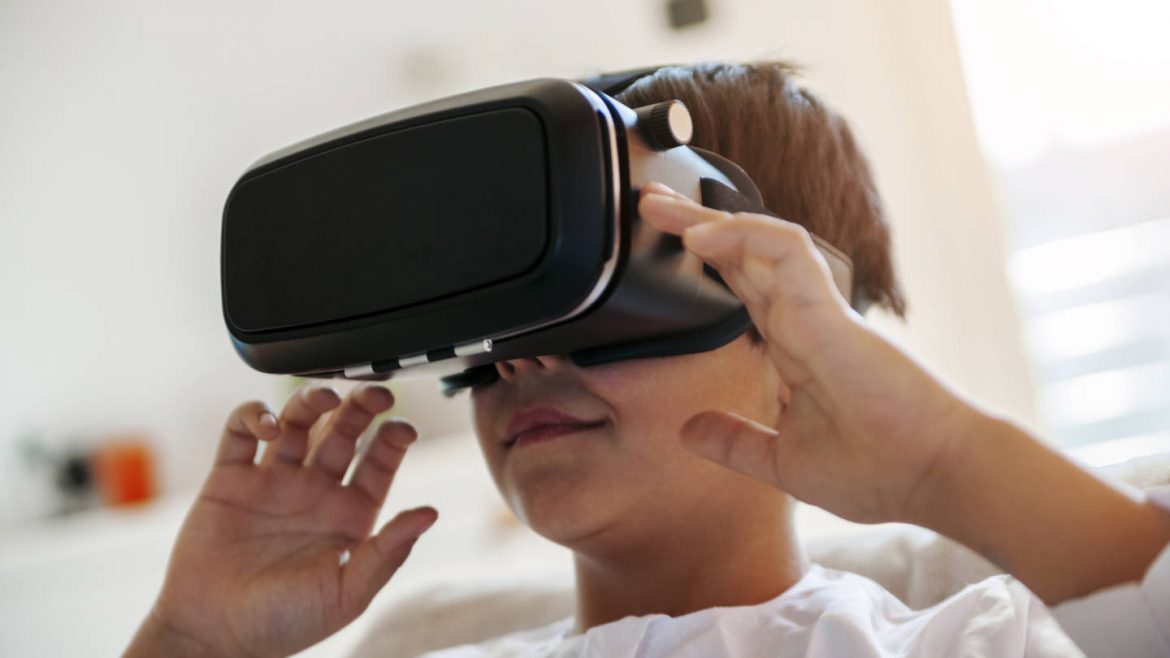
The Vodafone Malta Foundation and the University of Malta are to develop cutting-edge technology involving virtual reality to reduce pain without the use of medication in children undergoing painful, high-stress hospital procedures.
In what will be a first in the medical field, the €113,000 project will combine virtual reality with ‘affective gaming’, meaning that the specially designed game will be intelligent enough to also determine the user’s emotional and physical state and adjust the game accordingly in real time in order to distract the child from feeling pain.
The funding will be made available through the Research Trust (RIDT) of the University of Malta, whilst the research will be carried out at the Department of Artificial Intelligence. It is expected that this highly specialised technology will take three years to develop.
The Vodafone Malta Foundation aims to first roll out the technology amongst children receiving cancer treatment at the Sir Anthony Mamo Oncology Centre and, subsequently, to all children receiving any form of hospital-based treatment.
Speaking at the signing of the grant agreement, Vodafone Malta Foundation chairman Michel Macelli said that the Foundation was proud to once again collaborate with the University of Malta on a project which will break new ground through its innovative use of technology.
“The project, which promises to substantially improve the quality of care given to young patients by alleviating pain without the use of medication, is very much in line with the mission of the Vodafone Malta Foundation. Our primary objective is to target strategic areas for investment in order to make maximum impact. We work mainly in the areas of health and education through our Connecting for Good programme, which is all about combining Vodafone’s charitable giving and technology to make a difference.”
The Rector of the University of Malta, Prof. Alfred Vella, noted that “once again, the University of Malta, this time through the work of the Department of Artificial Intelligence, is pushing the frontiers of knowledge in order to discover new and innovative solutions aimed at
helping those suffering from some sort of pain, especially children undergoing cancer treatment. The implications of such a research project are endless, since there is potential to not only make treatment safer and less distressing for the patients but also cheaper. This project will also place Malta on the international map, together with other universities leading this area of research.”
What is Virtual Reality?
Virtual Reality (VR) is a computer technology capable of immersing a user into a simulated environment and of convincing the human brain that it is somewhere it is really not, through the use of a specific VR headset.

VR’s role in pain management has recently been a topic of interest in the healthcare community. Studies have proven that VR can relieve by up to 50 per cent of the pain, anxiety and distress experienced by children suffering from various illnesses when undergoing medical procedures such as intravenous (IV) injections, vaccinations, anaesthesia administration, and other procedures required as part of routine care, such as burn wound dressing changes.
However, the project will go beyond this since it will make use of adaptation which will enable the VR environment to change in real time according to the level of anxiety experienced by the patient. This will be measured using biometrics collected through non-invasive, wearable devices (such as a smartwatch).
By monitoring the heart rate of the child, it can be determined whether he/she is experiencing fear or pain in real time. By knowing this information, an Artificial Intelligence mechanism will adapt the graphics of the VR game, the action within it and the tempo of the background music. Therefore, a high heart rate will prompt a change to calming colours and soothing music in order to calm the patient whilst, conversely, if the child is not engaged enough, the game will become more exciting in order to distract the child from the pain he/she would be feeling.
